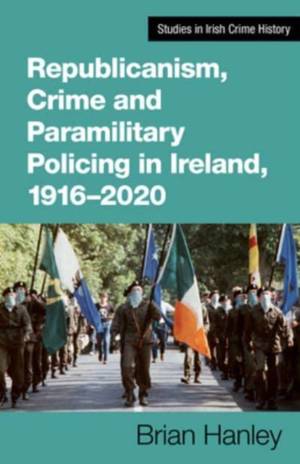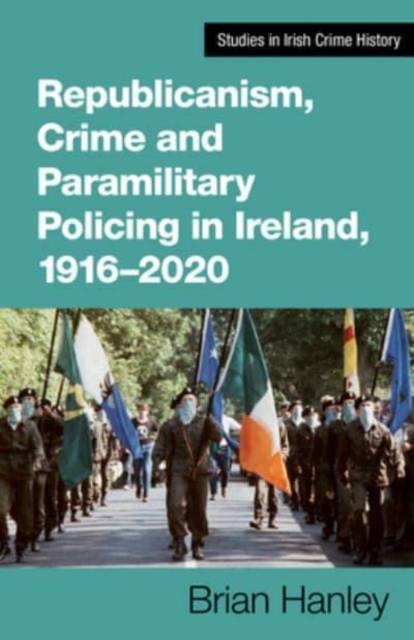
- Retrait gratuit dans votre magasin Club
- 7.000.000 titres dans notre catalogue
- Payer en toute sécurité
- Toujours un magasin près de chez vous
- Retrait gratuit dans votre magasin Club
- 7.000.000 titres dans notre catalogue
- Payer en toute sécurité
- Toujours un magasin près de chez vous
Description
This book examines the relationship between Irish republicanism, policing and crime from 1916 to the present day. While little academic attention has been paid to this aspect of republican history, crime and policing arose as issues in every era of the IRA's existence. This book describes republican attempts to deal with crime during the War of Independence, the problems caused by the Civil War split and how the organization grappled with accusations of criminality throughout much of the twentieth century. These questions emerged again with a vengeance during the modern Irish conflict after 1969 and persisted into the twenty-first century. During this period, the perceived connection between the IRA and gangland crime became established in both popular culture and state discourse, north and south of the border. This book contains much new information on the IRA's role in policing crime during the War of Independence. It looks at the way in which accusations of involvement in crime were weaponized during the Civil War and the IRA's attitude to crime and criminals thereafter. It also then examines the way in which the modern Northern Ireland conflict transformed the relationship between republicans and crime, north and south. Though written for a popular audience this book would also interest scholars in a variety of fields.
Spécifications
Parties prenantes
- Auteur(s) :
- Editeur:
Contenu
- Nombre de pages :
- 172
- Langue:
- Anglais
- Collection :
- Tome:
- n° 1
Caractéristiques
- EAN:
- 9781782055471
- Date de parution :
- 28-10-22
- Format:
- Livre broché
- Format numérique:
- Trade paperback (VS)
- Dimensions :
- 127 mm x 196 mm
- Poids :
- 158 g







